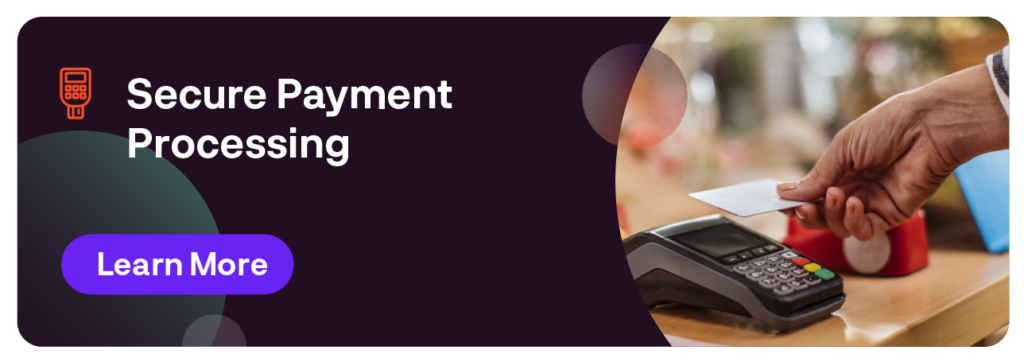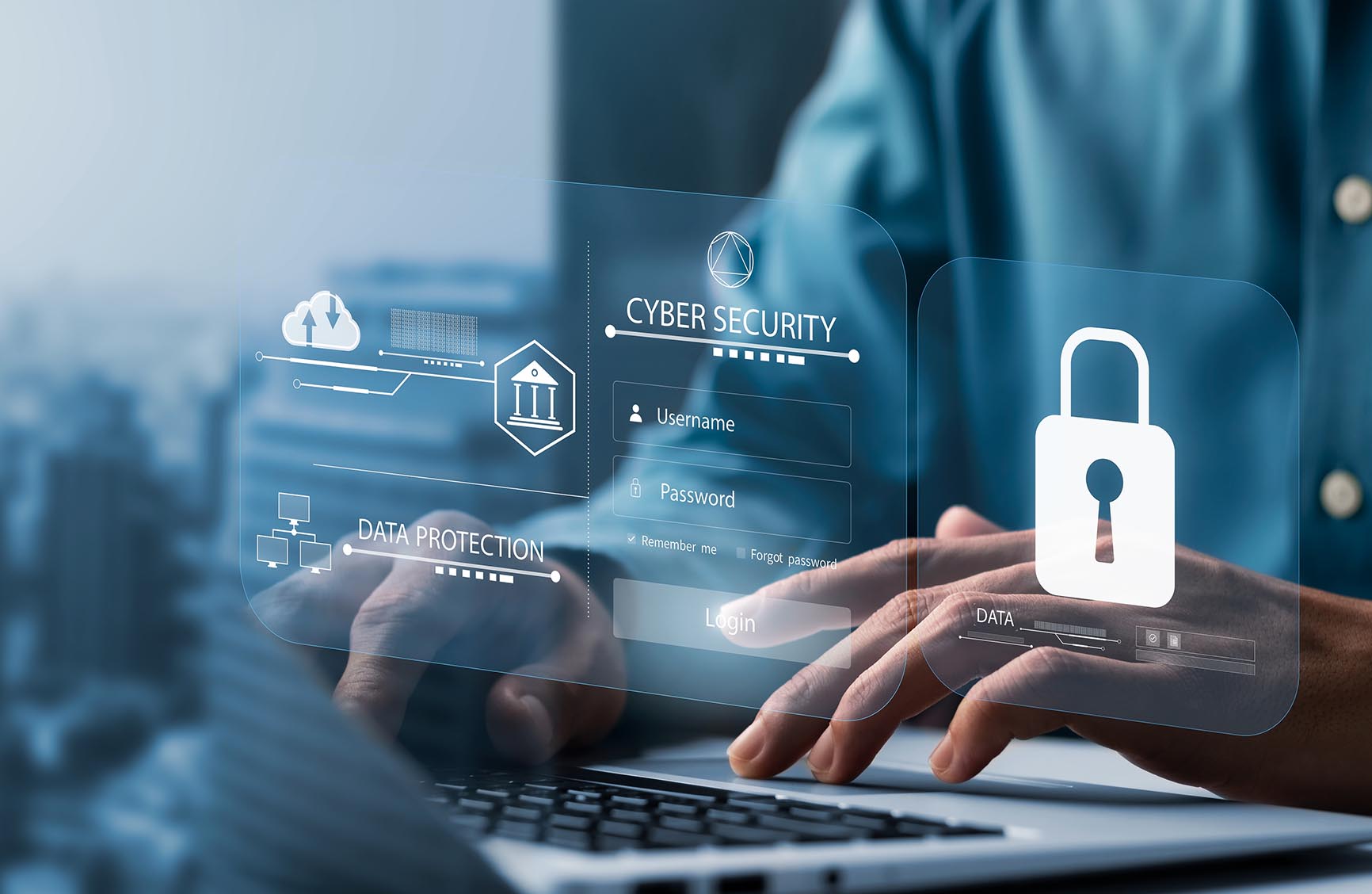In the digital age, the security of monetary transactions is more crucial than ever for small businesses. As transactions increasingly move online, the risks associated with digital payments also rise. This guide aims to assist small business owners in enhancing their payment security, safeguarding the longevity of their business and ensuring they can protect customer data.
Understanding Payment Security
Payment security involves protecting financial transactions from fraud and breaches. For small businesses, this includes implementing robust payment security across various payment methods such as credit/debit cards, online payments, and mobile transactions. The importance of effective payment security cannot be overstated, with consequences of inadequate payment security ranging from financial loss to a damaged reputation and loss of customer trust.
What’s at Risk?
Inadequate payment security can have a multi-dimensional impact on a small business. It affects not just its immediate financial health but also its long-term viability and reputation.
Direct Monetary Loss: The most immediate impact of a security breach is the direct loss of funds. This can occur through fraudulent transactions, where unauthorized parties access and use payment information.
Cost of Rectification: Following a breach, businesses often incur significant costs in investigating the incident, strengthening security measures, and possibly paying fines for non-compliance with data protection regulations.
Increased Insurance Premiums: Businesses that suffer security breaches may see an increase in insurance premiums, or in some cases, difficulty in obtaining insurance coverage.
Loss of Consumer Confidence: A breach can severely damage a business’s reputation. Customers lose trust in a company’s ability to protect their personal and financial information, which can be hard to regain.
Difficulty in Attracting New Customers: Gaining new customers becomes more challenging when a business is known for a security breach. Potential customers are often wary of using services from a company that has a history of payment security issues.
Business Disruption: In the aftermath of a security breach, businesses may need to temporarily shut down operations to investigate and address the issue. This disruption can lead to loss of revenue and affect business continuity.
As such, implementing comprehensive payment security is not just a regulatory necessity but a critical aspect of safeguarding the future of the business.
Essential Payment Security
Ensuring the security of financial transactions is vital for small businesses. Let’s delve deeper into the essential security measures that all small businesses should be following:
SSL Certificates
A Secure Socket Layer (SSL) certificate is more than a good-to-have feature; it’s a necessity for any business engaging in online transactions. It encrypts communication between your customer’s web browser and your server, ensuring that sensitive information like credit card numbers and personal details are transmitted securely. This not only protects data but also boosts customer confidence, as evidenced by the padlock icon in the browser’s address bar.
Secure Payment Gateways
Choosing a secure payment gateway is crucial for payment security. A reliable gateway not only processes transactions securely but also helps in complying with various standards like PCI DSS. Look for features like fraud detection, real-time processing, and encryption. It’s also beneficial to select a gateway that offers seamless integration with your current systems and provides robust customer support.
PCI DSS Compliance
Adhering to the Payment Card Industry Data Security Standard (PCI DSS) is not optional, but rather mandatory for any business that handles credit card transactions. This set of security standards is designed to ensure all companies that accept, process, store, or transmit credit card information maintain a secure environment. Compliance involves regular security assessments and adhering to standards like maintaining a secure network, protecting cardholder data, maintaining a vulnerability management program, implementing strong access control measures, regularly monitoring and testing networks, and maintaining an information security policy.

Advanced Security Technologies
To enhance payment security, there are additional security measures available that you should consider taking your payment security to the next level.
Encryption and Tokenization
Encryption and tokenization are critical components of payment security tools. Encryption transforms data into a coded format during transmission, making it unintelligible to unauthorized users. Tokenization substitutes sensitive data with a non-sensitive equivalent, known as a token. These tokens can be transmitted over the internet or stored in internal systems without direct exposure of the actual sensitive data, significantly reducing the risk of data breaches.
Multi-Factor Authentication (MFA)
Multi-factor authentication (MFA) is a vital payment security measure for small businesses. It adds an extra layer of defense by requiring two or more verification factors to gain access to a resource such as a payment system, database, or online account. Unlike traditional single-password protection, MFA combines something the user knows (like a password) and something the user has (such as a smartphone or a security token). This blend of different credentials significantly reduces the risk of unauthorized access, as it becomes much harder for attackers to compromise multiple authentication factors.
For small businesses, implementing MFA can mean the difference between a secure transaction environment and a potential financial catastrophe. It’s an affordable, effective way to prevent cyber threats and protect sensitive payment information.
Regular Security Audits
Conducting regular security audits and vulnerability assessments is key to maintaining robust payment security measures. These audits help identify potential vulnerabilities in your payment system and suggest improvements. This could involve hiring external cybersecurity experts to conduct penetration testing and risk assessments. Regular updates to your security protocols based on these audits can significantly enhance your defenses against new types of cyber threats.
Continuous Monitoring
Implementing continuous monitoring tools is a fundamental payment security measure. It provides real-time alerts about suspicious activities, allowing businesses to react quickly to potential security breaches, minimizing damage.
Educating Employees and Customers
For small businesses venturing into the digital marketplace, educating both employees and customers about secure payment practices is not just an added value—it’s a necessity.
For employees, this education means understanding the nuances of payment security protocols and best practices, ensuring they are equipped to handle transactions securely and respond to potential threats effectively. For customers, it involves providing clear, accessible information on how their data is protected, enhancing their confidence and trust in the business. This dual approach to education forms a critical part of a small business’s strategy to create a secure and reliable online transaction environment.
Staying Updated with Security Trends
Security measures are constantly evolving as hackers are continually enhancing their skills as well, because of this constantly shifting environment keeping up to date on the latest trends and technologies in payment security is essential. Stay informed about new threats and emerging technologies in payment security. Regularly engage with industry blogs, webinars, and workshops to keep your knowledge and practices up to date.
Wrapping Up
By implementing a robust security framework that encompasses SSL certificates, secure payment gateways, PCI DSS compliance, advanced technologies like encryption and tokenization, and rigorous multi-factor authentication, small businesses can significantly mitigate the risks associated with payment transactions.
Staying on top of the latest trends and technological advancements in payment security is not just a precautionary measure but a fundamental business strategy to ensure the longevity, reputation, and trustworthiness of a small business in the digital world. By embracing these practices, small business owners can confidently navigate the complexities of digital payments, ensuring the security and prosperity of their enterprises in the digital age.
Want to see how Clearent by Xplor can provide you with a secure payment solution? Connect with us to start a conversation today.

by Clearent by Xplor
-
First published: January 05 2024
Written by: Clearent by Xplor
